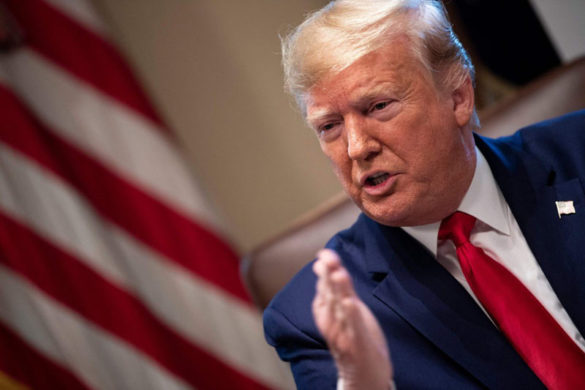
Donald Trump’s threat to raise tariffs on Chinese goods just the ‘art of the deal’, analysts say
US President Donald Trump’s threat on Tuesday to raise tariffs on Chinese goods was little more than posturing, analysts said, as the two countries continue to work towards an interim trade war deal.
Speaking at an event in New York, Trump said: “If we don’t make a deal, we will substantially raise those tariffs.” But he added that “a significant ‘phase one’ trade deal could happen soon” and that Beijing was “dying to make a deal”.
China’s Ministry of Commerce said on Thursday that the two countries had agreed to the phased removal of tariffs on each other’s goods, but the next day Trump denied committing to such an arrangement.
Lu Xiang, a specialist on US affairs at the Chinese Academy of Social Sciences, said it was unlikely that Trump had made his final decision on the deal and that he was just trying to ramp up the pressure on China.
“I still think a deal could be concluded by the end of the year,” he said, adding that he could not rule out the possibility of an about-turn on what had already been agreed.
Michael Pillsbury, an adviser to Trump on China issues, said in September that if the trade talks failed the president could increase the tariffs on Chinese goods to “50 per cent or 100 per cent”.
The US has imposed a 25 per cent tariff on US$250 billion worth of Chinese imports and a 15 per cent duty on a further US$112 billion. A new 15 per cent tariff on US$156 billion worth of Chinese products is set to take effect on December 15.
Chen Long, a partner at the Beijing office of research agency Plenum, said the only person who knew how things might turn out is the president himself.
“Trump is playing the art of the deal,” he said. “It is ultimately up to him whether the US accepts the deal or not.”
Wendy Cutler, vice-president of the Asia Society Policy Institute and a former acting deputy US trade representative, said that Trump’s love for tariffs “permeates the speech”.
“It was encouraging that he said we are close to a deal. However, I’m not sure I would agree that China is ‘dying for a deal’,” she said.
“Once again, he casts this negotiation as one where the US has all the leverage, while China’s economy is on a downward spiral. I suspect that China believes it has the upper hand in the talks, given the political developments in the US and the upcoming election.
“These conflicting perceptions are undoubtedly complicating the ability of both sides to close the deal. Being close to a deal is no guarantee for a deal getting done.”
Li Ruogu, a former president of the Export and Import Bank of China, said at a forum in Beijing on Wednesday that although China could not rely on the US to resolve their dispute it should continue to take steps to fulfil its commitments to reform and to open up its markets to help break the deadlock.
“We have made many commitments to domestic, foreign and private firms but not implemented them,” he said.
“As long as we fulfil those promises … [we will have] a foundation for resolving the conflict between China and the US.”